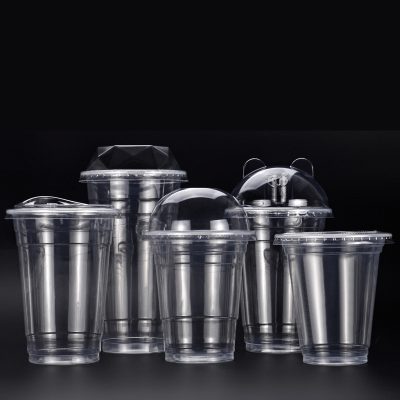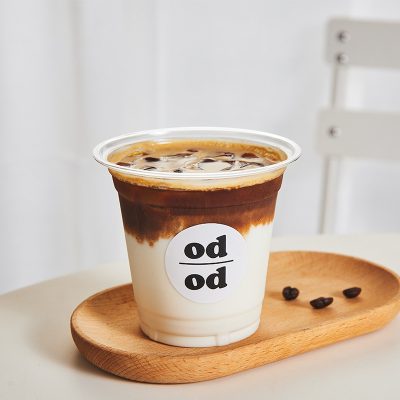Recyclable plastic cups – eco-conscious and practical
Features:
- Material Selection:
- Opt for recyclable plastics such as PET (Polyethylene Terephthalate) or PP (Polypropylene), which are widely accepted in recycling programs.
- Consider using post-consumer recycled (PCR) content to reduce environmental impact and promote circular economy principles.
- Certifications and Standards:
- Ensure cups meet recognized standards for recyclability, such as those set by organizations like ASTM International or the Association of Plastic Recyclers (APR).
- Design for Recycling:
- Design cups with minimal contamination (e.g., labels that easily separate from the cup) to facilitate recycling processes.
- Avoid using complex materials or additives that hinder recyclability.
- Functional Design:
- Offer a range of sizes suitable for different beverage volumes, from small (e.g., 8 oz) to large (e.g., 20 oz), to meet various consumer needs.
- Design cups with sturdy construction and leak-resistant features to ensure practicality for everyday use.
- Customization Options:
- Provide options for custom printing or branding with eco-friendly inks to promote businesses or events sustainably.
- Offer clear and translucent options to accommodate different aesthetic preferences.
- Safety and Compliance:
- Ensure cups are made from food-safe materials and comply with relevant regulations for food contact.
- Provide clear labeling to communicate recyclability and proper disposal instructions to consumers.
Considerations:
- Cost-Effectiveness:
- Balance sustainability with cost-effectiveness to offer competitive pricing that appeals to environmentally conscious consumers.
- Consumer Education:
- Educate consumers about the benefits of recycling and proper disposal practices to maximize recycling rates.
- Market Demand:
- Conduct market research to gauge consumer interest in recyclable products and tailor features accordingly to meet demand.
- Packaging and Distribution:
- Optimize packaging to minimize environmental impact, using recycled or recyclable materials for shipping and retail display.
Example Use Cases:
- Food Service and Hospitality: Ideal for restaurants, cafes, and catering services looking to reduce their environmental footprint without sacrificing quality or convenience.
- Events and Festivals: Suitable for large-scale events where eco-friendly practices are emphasized, promoting sustainability among attendees.
- Retail and Consumer Goods: Perfect for supermarkets, convenience stores, and online retailers catering to eco-conscious consumers seeking recyclable alternatives.
By focusing on these features and considerations, recyclable plastic cups can offer a sustainable and practical solution for various applications, supporting environmental stewardship while meeting consumer expectations for functionality and convenience.







